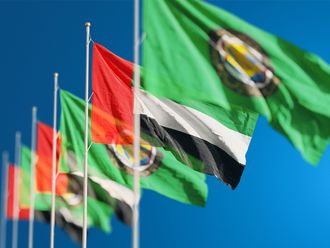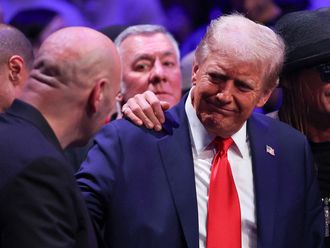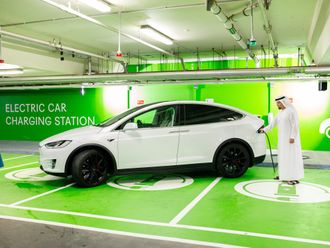
The UAE is at the forefront of a new era, where the fusion of technology and strategy is reshaping entire industries. By integrating artificial intelligence (AI) into its trade and finance sectors, the UAE is not only embracing the future but setting global benchmarks that others are beginning to follow.
This ambitious transformation is creating a ripple effect, positioning the UAE as a global leader and providing a road map for the MENA region and beyond. As Sheikh Hamdan bin Mohammed bin Rashid Al Maktoum, Crown Prince of Dubai, Deputy Prime Minister and Minister of Defence of the UAE, remarked, “Our vision is to build a future where AI empowers every sector, fostering growth and improving quality of life.”
The UAE’s success story is a testament to how bold, visionary leadership can harness technology for economic progress.
In the complex world of trade finance, the UAE has addressed long-standing challenges head-on. Traditionally plagued by cumbersome processes and vulnerabilities to fraud, trade finance has undergone a dramatic shift in the UAE thanks to AI integration. By utilising AI-powered blockchain technology, the nation has ensured greater transparency and security, allowing for faster, more reliable cross-border transactions.
A forward-thinking approach
Sultan Ahmed bin Sulayem, Group Chairman and CEO of DP World, encapsulates the impact of this innovation: “AI is helping us innovate and keep Dubai at the cutting edge of global trade. Efficiency is the key, and AI is the tool that makes it happen.” This forward-thinking approach sets a new standard for trade finance practices, showcasing a clear pathway for other countries to modernise and enhance their financial systems.
The influence of AI on trade in the UAE extends far beyond document verification. By implementing automated compliance checks, speeding up payment settlements, and utilising predictive analytics, the UAE has drastically reduced processing times and slashed operational costs.
Financial institutions across the nation are leveraging machine learning to conduct sophisticated credit risk assessments, enabling smarter, data-driven decisions. This strategic use of AI aligns with projections from the World Trade Organisation (WTO), which estimates that digital solutions could add as much as $1.5 trillion to global trade by 2030. The UAE’s adoption of AI is a prime example of how technology can be harnessed to unlock unprecedented economic growth.
At the heart of the UAE’s trade revolution are its world-class ports, particularly Jebel Ali, operated by DP World. Here, AI-driven automation and machine learning have transformed cargo handling, logistics, and resource allocation.
These advancements have minimised human error, streamlined processes, and facilitated the seamless flow of goods, reinforcing the UAE’s status as a premier global logistics hub. This model is a valuable case study for other nations, especially in the MENA region, looking to enhance their own port operations and boost trade efficiency. The UAE’s integration of AI into its physical trade infrastructure underscores its broader vision of innovation-led economic growth.
Expanding AI’s reach
Looking ahead, the UAE is focused on sustaining its leadership by investing in AI research and nurturing local talent. By equipping the workforce with cutting-edge skills, the nation is preparing for the next wave of digital transformation.
Sheikh Khaled bin Mohamed bin Zayed Al Nahyan, Crown Prince of Abu Dhabi, recently emphasised this forward-looking strategy, noting, “We must empower our people with the skills and knowledge to drive technological progress.” Expanding AI’s reach into various economic sectors will create a highly interconnected, technology-driven ecosystem, aligning with the UAE’s commitment to sustainable growth and environmental responsibility.
The UAE’s experience offers valuable lessons for the MENA region. By adopting similar AI-driven strategies, regional economies can modernise their trade finance frameworks, streamline operations, and build a stronger, more resilient financial infrastructure. Collaborative AI platforms and investments in advanced technologies can significantly enhance regional trade efficiency, while AI-focused regulatory frameworks will ensure responsible and secure implementation.
Clear vision from its leadership
Globally, the UAE’s integration of AI into trade finance serves as a powerful example for other countries. By embracing AI-powered blockchain systems, nations can enhance transaction speed, reduce fraud, and improve overall reliability. Financial institutions worldwide should look to the UAE’s banks, such as Emirates NBD, which have successfully leveraged AI for risk assessment and fraud prevention.
Promoting international collaboration in AI research and development will further accelerate innovation in trade finance. The UAE’s commitment to a future driven by AI is not merely about technological advancement; it is a strategic move to secure long-term economic progress, guided by a clear vision from its leadership.
The UAE’s journey in AI is a story of ambition, innovation, and leadership. By setting the pace for the global digital economy, the UAE has laid a strong foundation for a more interconnected, efficient, and secure future. The country’s achievements in harnessing AI provide a blueprint for the world, illustrating how technology, when guided by a bold and visionary approach, can transform entire industries and pave the way for sustainable growth.
As nations look to the UAE for inspiration, the path forward becomes clear: embrace innovation, invest in talent, and lead with a commitment to progress.
Dr. Areej A. Siddiqui and Dr. Sania Ashraf are faculty in Dubai Business School, University of Dubai












